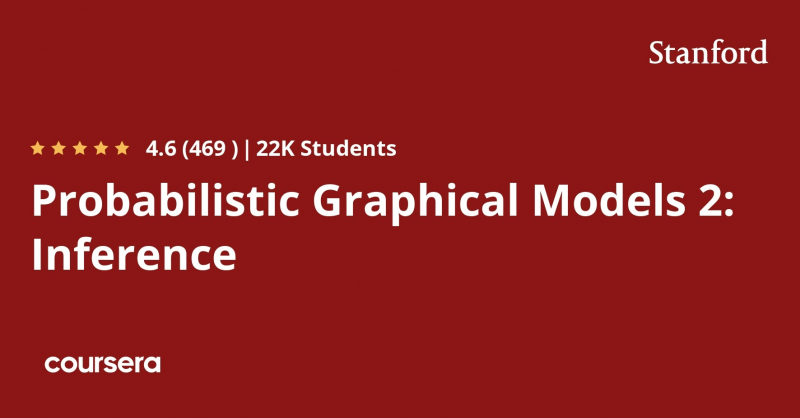Probabilistic Graphical Models 2: Inference

PGMs (probabilistic graphical models), one of the best online Approximation courses, are a powerful tool for storing probability distributions in complicated domains, such as joint (multivariate) distributions with several random variables that interact with one another. These representations are based on notions from probability theory, graph algorithms, machine learning, and more, and they lie at the crossroads of statistics and computer science. They serve as the foundation for cutting-edge technologies in a wide range of fields, including medical diagnosis, picture interpretation, speech recognition, natural language processing, and so on. They're also a key component in the formulation of many machine-learning issues.
This is the second of three courses in a series. Following on from the first course's focus on representation, this one looks at probabilistic inference and how a PGM may be used to answer questions. A PGM's structure is designed to allow questions to be answered efficiently, despite the fact that it typically depicts a very high dimensional distribution. The course covers both precise and approximation techniques for various sorts of inference tasks, as well as when and how each should be used. Two hands-on programming projects are included in the (highly recommended) honors track, in which core routines of the most often used exact and approximation algorithms are constructed and applied to a real-world situation.
- Flexible deadlines: Reset deadlines based on your availability.
- Shareable certificate: Get a Certificate when you complete
- 100% online: Start now and learn at times that suit you.
- Course 2 of 3 in the: Specialization Probabilistic graphical models
- Advanced level
- Approx. 38 hours to complete
- Subtitles: French, Portuguese (European), Russian, English, Spanish
SKILLS YOU WILL GAIN
- Inference
- Gibbs Sampling
- Markov Chain Monte Carlo (MCMC)
- Belief Spread
Rating: 4.6/5
Enroll here: coursera.org/learn/probabilistic-graphical-models-2-inference












